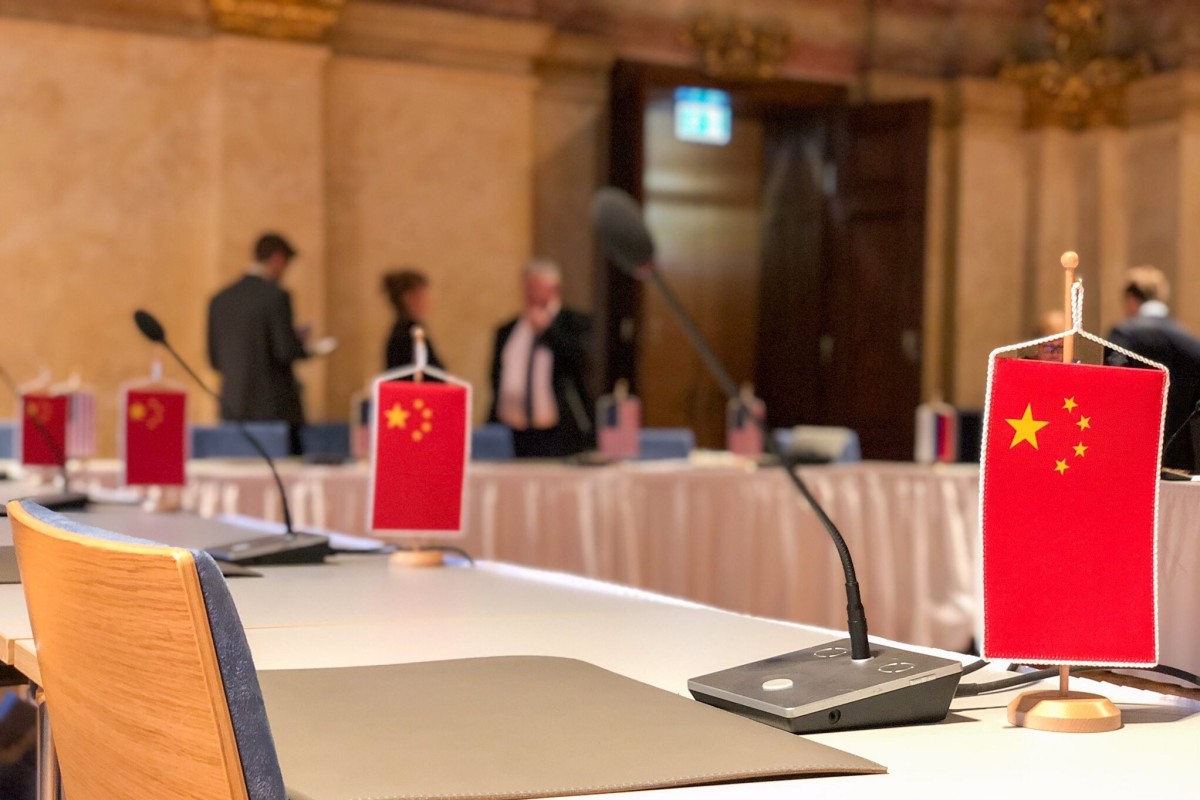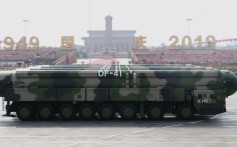US is shunning its responsibilities on arms control
Observers believe the American strategy is a cynical ploy to complicate and derail negotiations
SCMP Editorial Published: 28 Jun, 2020

US envoy Marshall Billingslea tweeted a photo of Chinese flags on an empty negotiating table before the start of US-China arms control talks in Vienna on June 22, 2020. Photo: Twitter
The disparity between China’s global aspirations and those of the United States under President Donald Trump could not be more plainly on show than in attitudes towards weapons pacts. Beijing has agreed to join the United Nations’ Arms Trade Treaty, which the American leader announced last year he would withdraw his country from.
Negotiations between Washington and Russia on a new agreement to cap their arsenals of nuclear warheads are being jeopardised by America’s insistence of Chinese involvement. The world is being made evermore dangerous with each accord the Trump administration shuns.
Arms treaties are complex arrangements that involve much bargaining. The new START pact between the US and Russia expires next February, already a tight deadline;
yet the American side treated the latest round of talks in Vienna this week as less about meeting a deadline than ensuring it would be missed by trying to complicate matters with China’s inclusion.
‘New battlefield’ as China refuses to join nuclear talks with US, Russia
11 Jun 2020

Trump has already left two treaties with Russia, one on overflights and the other on intermediate-range nuclear forces. He withdrew the US from the Iran nuclear deal in 2018, despite international weapons inspectors insisting that the agreement struck with seven nations in 2015 was working.
Russia and the US have by far the world’s biggest nuclear weapons arsenals, with an estimated 6,300 and 5,800 respectively. The new START, negotiated by Trump’s predecessor, Barack Obama, allows the nations to each deploy a maximum of 1,550 nuclear weapons and halve the number of strategic nuclear missile launchers.
China, with an expanding nuclear programme but far fewer arms, has repeatedly rejected American pressure to participate and Russia has countered by also calling for the joining of American allies France and Britain, which have 290 and 215 warheads. Observers believe the US strategy is a cynical ploy to complicate and derail the negotiations.
Beijing’s motives are for the global good, not self-interest. By joining the Arms Trade Treaty, it has signed on to a multilateral pact aimed at regulating cross-border sales of several categories of conventional arms and prohibits their transfer under certain circumstances. Participating in such accords is what is expected of a responsible world power.
This article appeared in the South China Morning Post print edition as: US amiss in talks to control arms trade
No comments:
Post a Comment